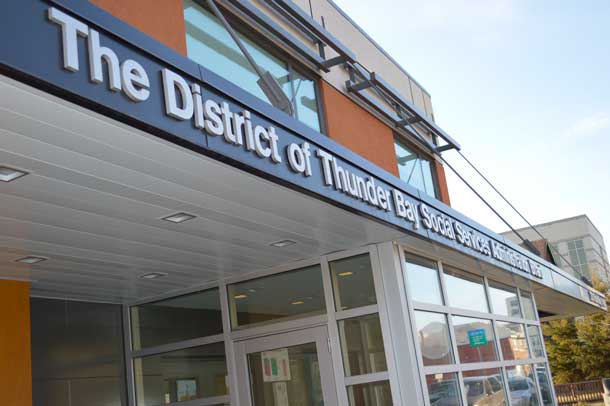 THUNDER BAY – Thunder Bay could face a lose of almost 400 jobs, and sixty million in economic activity along with $20 million in lost wages if a new municipal land transfer tax is put in place.
THUNDER BAY – Thunder Bay could face a lose of almost 400 jobs, and sixty million in economic activity along with $20 million in lost wages if a new municipal land transfer tax is put in place.
New research by the Ontario Real Estate Association (OREA) shows a significant loss of jobs and economic activity in Mississauga, London, Hamilton, Ottawa and Thunder Bay if a second (municipal) land transfer tax were imposed on local home buyers. OREA is undertaking a province-wide information campaign to educate voters and politicians in advance of the upcoming municipal elections about the economic perils of a new municipal land transfer tax (MLTT) — as it is known in Toronto — being considered in some major Ontario cities.
“Municipalities across Ontario are looking to the province for new revenue tools or taxes,” says Costa Poulopoulos, London-based real estate broker and president of OREA. “One of the tools being considered is a second (municipal) land transfer tax on home buyers, similar to the tax imposed by the City of Toronto. This tax carries a huge cost — no Ontario city can afford the kind of job losses Toronto has experienced because of the municipal land transfer tax.”
According to the report, Potential Economic Implications of the Municipal Land Transfer Tax in the Selected Ontario Municipalities, conducted by Altus Group Economic Consulting, the economic impacts of a MLTT on London, Mississauga, Hamilton, Ottawa and Thunder Bay totals more than $1 billion and a loss of more than 10,000 jobs. The effects on each city are predicted as follows:
Mississauga:
Loss of $482 million in economic activity
Loss of 3,157 jobs
Loss of $163 million in wages and salaries
London:
Loss of $270 million in economic activity
Loss of 1,771 jobs
Loss of $92 million in wages and salaries
Hamilton:
Loss of $342 million in economic activity
Loss of 2,240 jobs
Loss of $116 million in wages and salaries
Ottawa:
Loss of $543 million in economic activity
Loss of 3,558 jobs
Loss of $184 million in wages and salaries
Thunder Bay:
Loss of $60 million in economic activity
Loss of 392 jobs
Loss of $20 million in wages and salaries
“The housing market in our province creates jobs and drives local economies,” says Poulopoulos. “Our municipal leaders should be focusing their attention on ideas that will attract people and investment to their cities, not taxes that will hurt their economies.”
OREA’s campaign against the MLTT launched on September 15th and will run through to municipal election day (October 27th). The campaign will highlight the negative economic impacts of a MLTT on local communities and it includes billboard and bus shelter advertising, brochures, public relations, election events and a microsite — www.DontTaxMyDream.ca. The provincial campaign is most prominently visible in London, Mississauga, Hamilton, Ottawa and Thunder Bay.
MLTT’s effects on Toronto
In Toronto, the MLTT is applied to purchases on all properties in the City of Toronto over and above the existing provincial Land Transfer Tax. The tax has been in place in Toronto since 2008. By increasing the total expense associated with housing transactions in Toronto, the tax makes buying a home in Toronto more costly. As a result, a significant number of housing transactions within the City of Toronto did not take place, which has, in turn, affected several aspects of Toronto’s economy.
The report, Economic Implications of the Municipal Land Transfer Tax in Toronto, conducted by Altus Group Economic Consulting, outlines the economic losses incurred by the City of Toronto between 2008 and 2013 including:
- A loss of 38,278 resale home transactions
- A loss of $2.3 billion in economic activity
- A reduction of $1.2 billion in GDP
- A loss of 14,934 full-time jobs
- A loss of $772 million in wages and salaries
Resale housing transactions across Ontario generate significant economic activity. The purchase and sale of homes generates fees to professionals such as lawyers, appraisers, Realtors and surveyors, as well as taxes and fees to government. In addition, home buyers often purchase new appliances or furnishings and typically undertake renovations that tailor the new home to specific household requirements.
“This research proves that a MLTT will do more harm than good for cities all across Ontario,” says Poulopoulos. “It should be repealed in Toronto and it should never be pursued by any other municipality.”







